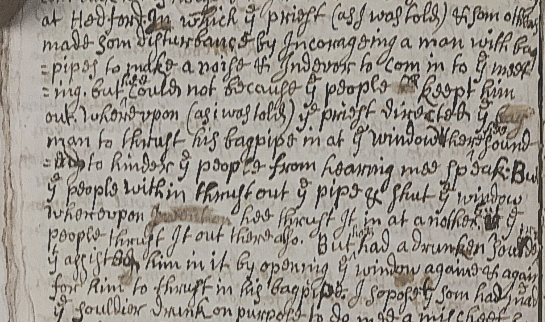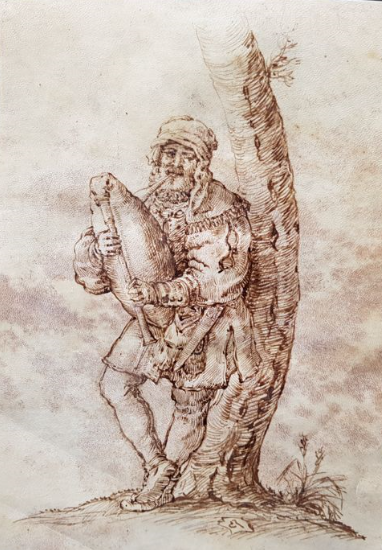
Julie Miller, a masters student from University of Essex, has taken up a research placement at the Essex Record Office, conducting an exploration into the story of John Farmer and his adventures, particularly in pre-revolutionary America, and has been jointly funded by the Friends of Historic Essex and University of Essex. Julie will be publishing a series of updates from the 12-week project.
At the end of the last post we left John Farmer living in Colchester. He was a 43-year-old family man, a wool comber by trade and his wife Mary was working as a nurse. They had two children, Mary Fulbig, Mary’s 20-year-old from her first marriage, and Ann, now about 8 years old. But John Farmer was also an itinerant Quaker minister who was regularly moved by Christ to travel, giving his testimony at inns and on the streets and he had already travelled widely in England, Scotland and in some of Ireland.
His journal says that in the 11th month of 1710 (January 1710/11) John Farmer received the instruction of the Lord to travel to the West of Ireland where there were currently no Quaker meetings. Farmer went to Liverpool, taking ship and arriving in Dublin on 18th March 1710/11. He travelled to the West of Ireland intending to hold meetings wherever he stopped. But he was imprisoned twice at Castlebar, County Mayo by Justice George Bingham for holding meetings.
In Headford in County Galway, Farmer endured his first episode of charivari (protest by rough music) when he encountered a priest and some townspeople determined to stop his meeting at a local hall. He reported glumly that the priest engaged a bagpipe player to interrupt proceedings:

‘ye priest instructed ye man to thrust his bagpipes in at ye window there he sounded to hinder ye people from hearing me speak. But ye people within thrust out ye pipe & shut ye window whereupon hee thrust it in at another but ye people thrust it out there also. But he had a drunken souldier that assisted him in it by opening ye window again & again for him to thrust his bagpipe.’

To the modern mind this episode is highly amusing. However the sober and godly John Farmer found the situation difficult, particularly as the priest then arranged a warrant for his arrest. Farmer was much relieved when friendly townspeople advised his guide to take him out of town by another road and he ‘escaped ye snare which ye priest laid for me after hee saw his musicians were ineffectual’.
In Galway John Farmer was arrested again, having fallen out with the local priest Reverend Shaw, and all his notes, permission papers and certificates were confiscated before he was thrown into prison again. He was forcibly removed from town by being placed on a boat which later came ashore in County Clare, where he held rather more successful meetings at Ennis, Quin and Sixmilebridge before moving on to Limerick where he preached at Bruff, Kilmallock, Tralee and Killarney and elsewhere. Farmer finally returned to England via Wales, the West Country and the home counties where he had various meetings with Quaker friends and visited his family in Somerset to advise them of his plan to go to America. He arrived home in Colchester on 9th July 1711.
So we leave John and Mary Farmer, and their girls Mary and Ann living quietly in Colchester, but not for much longer. In my next post we will look at John Farmer’s exploits in pre-revolutionary America.
